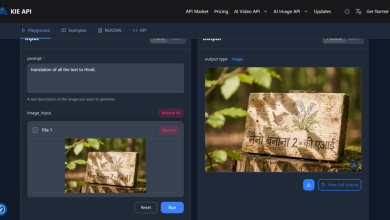
The current SEO industry is approaching $90 billion with estimates that it could reach nearly $150 billion by the end of the decade. But has AI stopped it dead in its tracks?
Search patterns in the age of AI are already indicating that AI is having an immediate impact on the shifting of search real estate. According to one Pew survey from earlier this year, Google users were less likely to click on result links when visiting search pages with an AI summary compared with those without one. In those searches with AI-generated summaries, the users very rarely clicked on the sources being cited. It is already clearly being demonstrated that when users want an answer quickly, AI will do, with or without a credible and verified source.
In a way, this isn’t that much different from the way people have always searched, it is just that the geography is slightly shifting. Those in the SEO field have long known that any results on the second page of search are basically the web graveyard. According to a study conducted earlier this decade, long before the integration of AI summaries, the first organic result in Google’s search had an average click-through rate of 28.5%, the second and third positions had a 15% and 11% click-through rate, respectively, and the tenth result had a barely quantifiable click-through rate of 2.5 percent.
Now, with the inevitable integration of AI into every part of personal technology, including web search, you can now put the entirety of the first page in that barely nonzero group of users.
This new paradigm is creating a period of discombobulation and fragmentation where traditional search systems are breaking down while new AI-driven standards are still emerging, leaving creators, publishers, communities and brands uncertain about what will actually get discovered and rewarded.
In crisis, an opportunity
The dynamics of today’s search workflow have certainly disrupted the typical investigative, navigational and transactional journey users have been on for at least the last quarter-century. The final resulting click isn’t investigative anymore, it’s hyper-intentional. That means traffic is down but the quality of what does click through is much better, increasing the value of actual click-throughs.
As the well-worn adage goes, the Chinese word for crisis is the same as opportunity. The crisis in SEO has presented a new opportunity for a new kind of optimization for content, namely, content must earn its keep with more credibility and less fluff. No more banking on drive-by traffic or getting lucky with traffic. Accidental site traffic from deep diving web crawlers and trawlers have now lost that luxury.
Under this new paradigm, AI doesn’t care about your pop-ups or brand color palette, it cares about clarity, citations, FAQs, stats, and actual substance. Some have called this authoritativeness, but even that is way too subjective.In a way, it’s still its own chicken-and-egg game. Trust breeds visibility, visibility breeds trust. That hasn’t changed.
And yet, the irony? While AI demands better content, some platforms are doubling down on walled gardens, blocking scrapers, keeping content behind auth paywalls, and cutting off the same open web they used to build themselves. Meanwhile, some publishers are monetizing access but not sharing that back with the creators. Democratization or corporatization? We’re watching that power struggle unfold in real time.
And with more platforms blocking scrapers unless you’re behind a paywall or plugged into a corporate pipeline, we risk creating a new version of the internet where discoverability is auctioned off to the highest bidder. That’s not democratization. That’s gatekeeping in disguise.
Creating new value for real intelligence
All that said, there’s still hope, especially among search tech companies that believe in the open web. If done right, a new model of Generative Engine Optimization, or GEO, can level the playing field if it is purpose-built with an emphasis on surfacing human-generated content. It can push creators and brands to rise on merit, not money, and foster a freer, more trustworthy and reliable internet.
We’re seeing early signs of an ecosystem that rewards content worth discovering because AI crawlers are increasingly able to parse quality, relevance, and engagement KPIs over just pay-to-play dominance or corporate bias. AI is able to resist the cheap enticements and clickbait that eventually took over the consumer web and seeped into search.
Let’s not kid ourselves though. Real problems still exist when we continue to see a surge of AI content. Traditional search engines are still flooding results with synthetic, AI-generated spam, burying real voices under algorithmic noise. As always, web consumers will have to continue remaining vigilant so that such content does not trick them to click.
Regardless of how the integration of AI with web search fully and finally ends, it will be imperative for those who want to succeed in the new era of GEO to create better and more authoritative content, especially when AI is prioritizing that content in search, and prioritizing the alternative in creation.
That nearly $100 billion SEO market isn’t going anywhere, even if we no longer call it “SEO.” Even with new AI technologies, the priorities won’t really change either and what wins is what always has: authentic and trustworthy information that is capable not only of securing user attention and interest, but delivering real intelligence.



